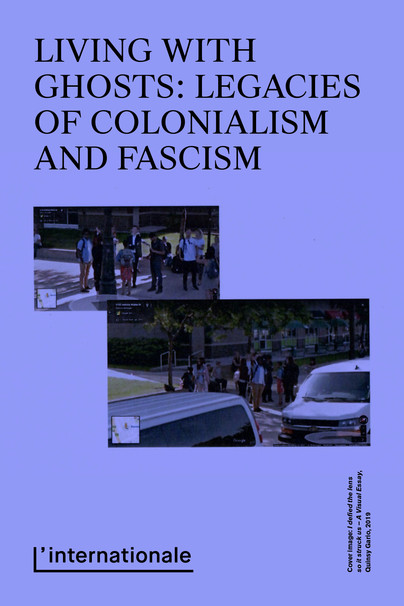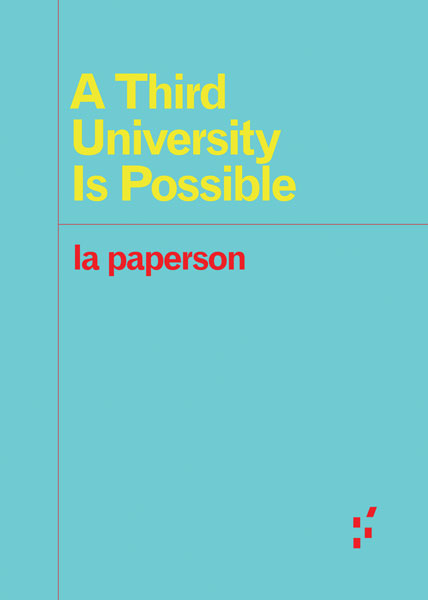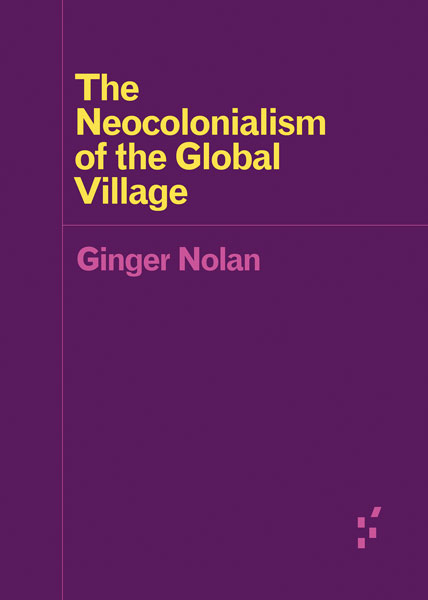L’Internationale (eds.): Living with Ghosts: Legacies of Colonialism and Fascism (2019)
Filed under book | Tags: · colonialism, fascism, nationalism, politics, populism, racism

“Living with Ghosts: Legacies of Colonialism and Fascism is a constellation of essays, conversations and images that point to the manner in which the legacies of colonialism and fascism reverberate in our present conjuncture. The impulse for producing this issue was a question of whether it may be possible to trace the connections between the violences of the colonial project through the horrors of fascism to current forms of racism, identitarianism and populism – what we initially called ‘an arc’ of colonialism-nationalism-fascism.
These shifts are palpable in the contemporary political uncertainties expressed in this collection of texts. Each of the contributors reflect on the specificities of their environment through their lived experiences, through their artistic practices, or reflections on the curatorial climate. They seek to maintain a space for critical engagement and political criticism. Furthermore, this issue considers the layers of historical conditions that inform states of ‘belonging’ and ‘sovereignty’ (even ‘citizenry’ as a debatable proposition) in Europe. What becomes evident from these various contributions is that there is no sudden or surprising development towards the right – too often expressed an ‘inexplicable phenomena’ of contemporary society. They instead address it as a slow and steady movement based on historical events and political terms of reference which have remain unresolved and have again returned, this time through the opportunism advanced and fuelled by the structures of capitalism that connect Europe to Russia and America. Each is a case study that recognises the patterns of violence and inequality evident in the political structures of colonialism and fascism.”
With contributions by Nick Aikens, Jyoti Mistry, and Corina Oprea, Gurminder K.Bhambra, Rex Edmunds and Elizabeth A. Povinelli, Gloria Wekker, Quinsy Gario, Nkule Mabaso, Jyoti Mistry, Jelena Vesić, and Kuba Szreder.
Edited by Nick Aikens, Jyoti Mistry, Corina Oprea
Publisher L’Internationale Online, 2019
Creative Commons BY-NC-SA License
ISBN 9789151931685
190 pages
La Paperson: A Third University Is Possible (2017)
Filed under book | Tags: · colonialism, decolonization, film, land, third cinema, university

“A Third University is Possible unravels the intimate relationship between the more than 200 US land grant institutions, American settler colonialism, and contemporary university expansion. Author la paperson cracks open uncanny connections between Indian boarding schools, Black education, and missionary schools in Kenya; and between the Department of Homeland Security and the University of California. Central to la paperson’s discussion is the “scyborg,” a decolonizing agent of technological subversion.
Drawing parallels to Third Cinema and Black filmmaking assemblages, A Third University is Possible ultimately presents a framework for hotwiring university “machines” to the practical work of decolonization.”
Publisher University of Minnesota Press, Minneapolis, 2017
Forerunners: Ideas First series, 19
Creative Commons BY-NC-ND 4.0 License
ISBN 9781517902087, 1517902088
xxv+72 pages
HT Max Liboiron
Ginger Nolan: The Neocolonialism of the Global Village (2018)
Filed under book | Tags: · colonialism, global village, neocolonialism, power

“The term ‘global village’—coined in the 1960s by Marshall McLuhan—has persisted into the twenty-first century as a key trope of techno-humanitarian discourse, casting economic and technical transformations in a utopian light. Against that tendency, this book excavates the violent history, originating with techniques of colonial rule in Africa, that gave rise to the concept of the global village. To some extent, we are all global villagers, but given the imbalances of semiotic power, some belong more thoroughly than others. Reassessing McLuhan’s media theories in light of their entanglement with colonial and neocolonial techniques, Nolan implicates various arch-paradigms of power (including ‘terra-power’) in the larger prerogative of managing human populations.”
Publisher University of Minnesota Press, Minneapolis, 2018
Forerunners: Ideas First series, 25
Creative Commons BY-NC-ND 4.0 License
ISBN 9781517904869, 1517904862
69 pages

